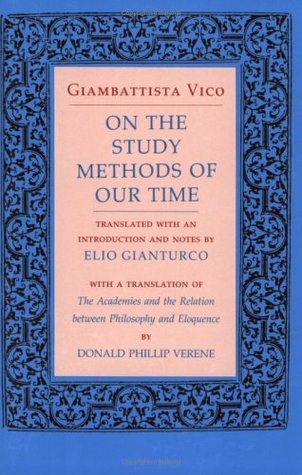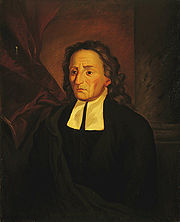
On the Study Methods of Our Time
1709
First Published
3.68
Average Rating
114
Number of Pages
On the Study Methods of Our Tim e remains a key text for anyone interested in the development's of Vico's thought and serves as a concise introduction to his work. Scholars and students in such disciplines as the history of philosophy, intellectual history, literary theory, rhetoric, and the history and philosophy of education will find this volume helpful and fascinating. Giambattista Vico's first original work of philosophy, On the Study Methods of Our Time (1708–9) takes up the contemporary "quarrel between the ancients and the moderns" and provides a highly interesting statement of the nature of humanistic education. This edition makes available again Elio Gianturco's superb 1965 English translation of a work generally regarded as the earliest statement by Vico of the fundamentals of his position. An important contribution to the development of the scientism-versus-humanism debate over the comparative merits of classical and modern culture, this book lays out Vico's powerful arguments against the compartmentalization of knowledge which results from the Cartesian world view. In opposition to the arid logic of Cartesianism, Vico here celebrates the humanistic tradition and posits the need for a comprehensive science of humanity which recognizes the value of memory and imagination.
Avg Rating
3.68
Number of Ratings
87
5 STARS
25%
4 STARS
36%
3 STARS
24%
2 STARS
11%
1 STARS
3%
goodreads
Author

Giambattista Vico
Author · 6 books
Giovanni Battista (Giambattista) Vico or Vigo was an Italian political philosopher, rhetorician, historian, and jurist. A critic of modern rationalism and apologist of classical antiquity, Vico's magnum opus is titled "Principles/Origins of [re]New[ed] Science about the Common Nature of Nations" (Principi di Scienza Nuova d'intorno alla Comune Natura delle Nazioni). The work is explicitly presented as a "Science of reasoning" (Scienza di ragionare), and includes a dialectic between axioms (authoritative maxims) and "reasonings" (ragionamenti) linking and clarifying the axioms. Vico is often claimed to have inaugurated modern philosophy of history, although the expression is alien from Vico's text (Vico speaks of a "history of philosophy narrated philosophically"). He is otherwise well-known for noting that verum esse ipsum factum ("true itself is fact" or "the true itself is made"), a proposition that has been read as an early instance of constructivist epistemology. Overall, the contemporary interest in Vico has been driven by peculiarly historicist interests as expressed most notably by Isaiah Berlin, Tagliacozzo, Verene, and Hayden White.